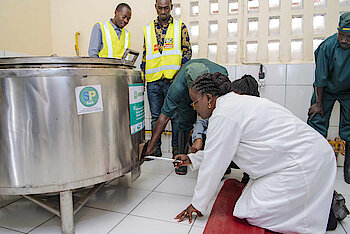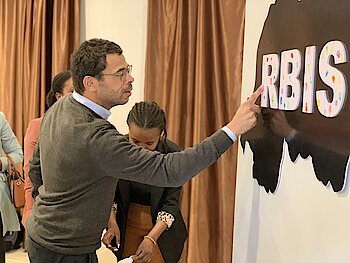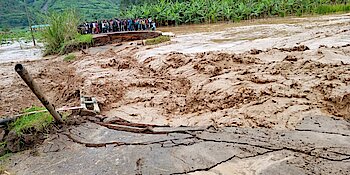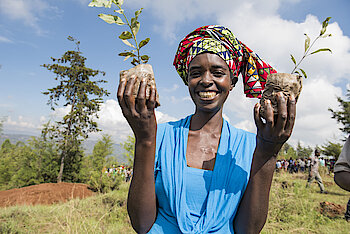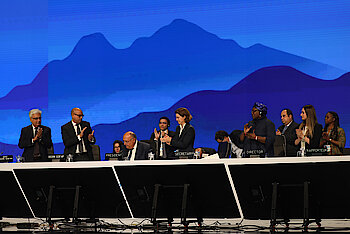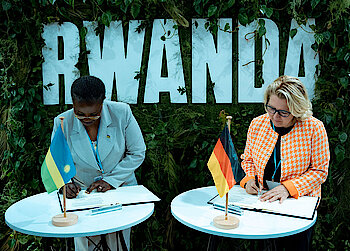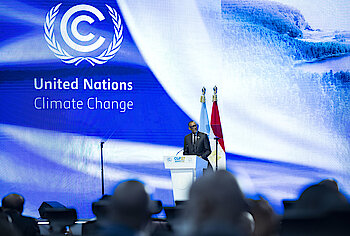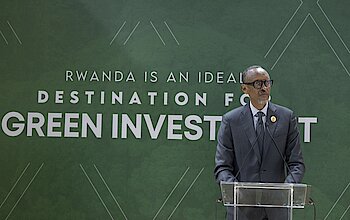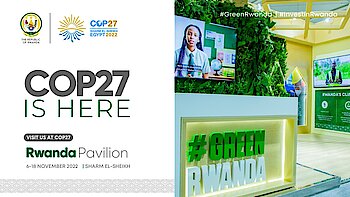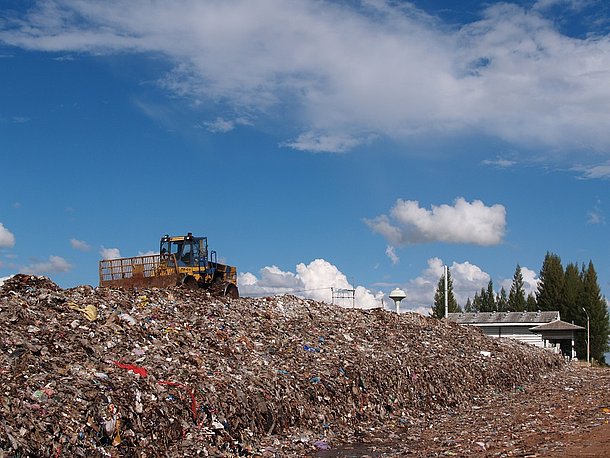
Why mitigating methane emissions is urgent now?
As methane emissions continue to increase, there are more reasons than ever to reduce methane emissions. Reducing human caused methane emissions is one of the fastest, most effective strategies to reduce the rate of warming and contribute to global efforts to limit temperature rise to 1.5C
A recent assessment from United Nations Environment Programme (UNEP) and the Climate and Clean Air Coalition found that cutting methane emissions would be a quick win to fight against climate change.
Methane is one of several greenhouse gases, which trap the sun’s heat in the atmosphere and thus cause the global average temperature to rise. Accounting for about 20% of global emissions, methane is the second most prevalent greenhouse gas after carbon dioxide, which makes up more than 70%.
Methane is many times more powerful than carbon dioxide at trapping heat. However, it breaks down much more quickly: methane is mostly removed from the atmosphere after a decade, while carbon dioxide can contribute to global warming for hundreds of years.
What are the sources of Methane emissions?
Agriculture is the main sources of methane emissions. Mainly, the livestock through enteric fermentation and manure management are the predominant source of emissions. Population growth have stimulated those emissions because of economic development and urban migration have stimulated unprecedented demand for animal protein.
The landfill also produce methane emissions when the municipal solid waste is deposited into landfill. It undergoes an aerobic (with oxygen) decomposition stage when methane is generated. Within less than one year, anaerobic conditions are established and methane producing bacteria being to decompose the waste and generate methane.
In addition, the paddy rice cultivation in which flooded fields prevent oxygen from penetrating the soil, creating ideal conditions for methane emitting bacteria accounts for another 8 % of human-linked emissions.
What are the contribution can we accomplish, if we reduce methane emissions?
It is highly important to note that, cutting methane emissions have many immediate co-benefits. In fact, reducing the methane emissions is quickly doable than implementing carbon dioxides reduction technologies such as carbon capture and storage.
The methane emissions are quickly broken from atmosphere; this means that if we put more efforts in cutting methane emissions, we can reach Paris agreement as soon as we aim, than carbon dioxide, which took a century to be broken from atmosphere.
Cutting methane emissions bring various co-benefits such as increase of food supplies, energy security, and health benefits, because the technologies to reduce those emissions bring those advantages. The actions to mitigate methane emissions include the providing animal with more nutritious feed so that they are larger, healthier and more productive, effectively producing more with less. Also famers can reduce methane by managing manure more efficiently by covering it, composting it, or using it to produce biogas.
When it comes on rice paddle, it was recommended to use alternate wetting and drying approaches that can halve emissions. Rather than allowing the continuous flooding of fields, paddies could be irrigated and drained two to three times throughout the growing season, limiting methane production without impacting yield. This process would also require on-third less water, making it more economical.
Other actions regard the emission reduction from landfills, by constructing managed landfills and produce the energy from landfill gas utilization.
Methane emissions in Rwanda
The methane emission have the high share of 65.3 % and its main predominant source is agriculture especially from the livestock emission such as the enteric fermentation and manure management. This is linked with the population growth, economic development and urban migration, which have increased the animal protein demand.
Topics
More posts
REMA OFFICIALLY LAUNCHES THE LPGS DONATED TO 20 SCHOOLS IN GREEN AMAYAGA PROJECT INTERVENTION AREA
The Minister of Environment, Dr. Jeanne d’Arc Mujawamariya has on 3rd May 2023 launched the use of Liquefied Petroleum Gas (LPG) for bulk cooking in…
The Rwanda Biodiversity Information System to Drive Climate Change Adaptation and Conservation was launched
The Center of Excellence in Biodiversity and Natural Resource Management at the University of Rwanda has launched the Rwanda Biodiversity Information…
Essential things to know about the loss and damage due to climate change
The evidence of both global and local climate change impact is beyond dispute. There are clear effects of climate change occurring all across the…
Why Women’s Consideration is a Key in battling climate change impacts?
The livelihoods of billions of people throughout the world are highly impacted by climate change, despite efforts to reduce its hazards. This is…
Rwanda welcomes COP27 outcomes on climate damages fund and keeping 1.5 degree goal alive
The Government of Rwanda has welcomed the outcomes of the 27th United Nations Climate Change Conference, known as COP27. At the meeting, nations…
Rwanda launches new EUR 46M facility to finance public sector climate action
Rwanda has launched a new facility that will invest in climate action led by the public sector on the sidelines of COP27 in Sharm El-Sheik, Egypt. The…
NATIONAL STATEMENT BY PRESIDENT PAUL KAGAME AT COP27
First, I express my appreciation to President Sisi, and the Government and people of the Arab Republic of Egypt, for hosting us in beautiful Sharm El…
PRESIDENT KAGAME LAUNCHES IREME INVEST AT COP27
The President of the Republic of Rwanda, His Excellency Paul Kagame has on November 7, 2022 launched Ireme Invest at the United Nations Climate Change…
Rwanda calls for greater climate action and shares green investment opportunities at COP27
Rwanda will press for more ambitious climate action and share the country’s green investment opportunities at this year’s UN Climate Change Conference…
